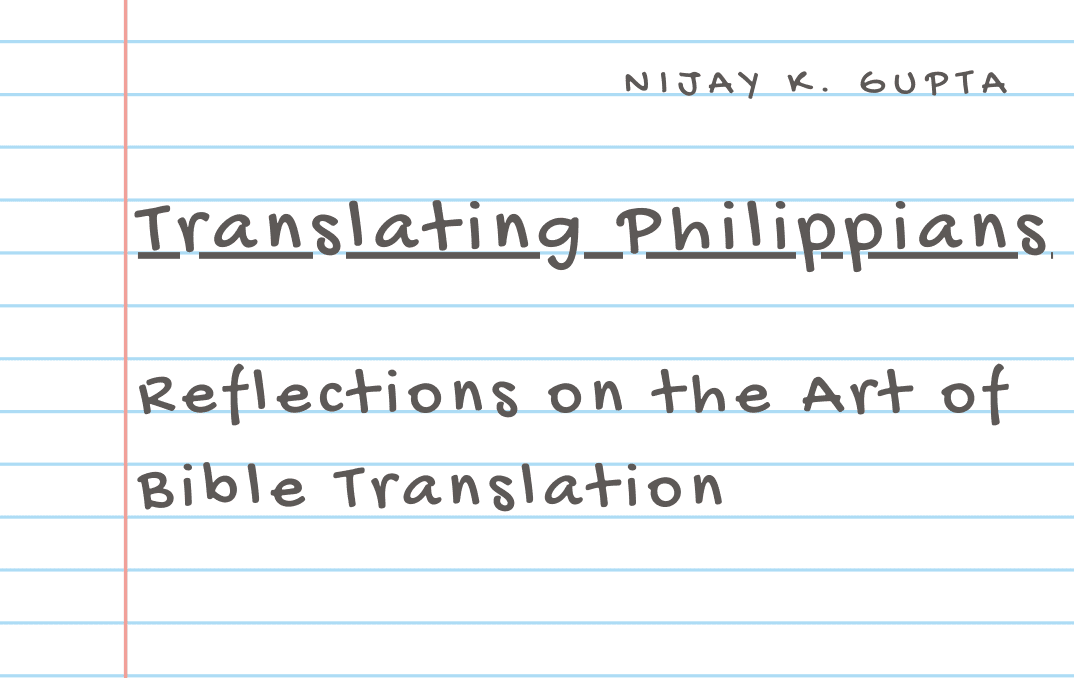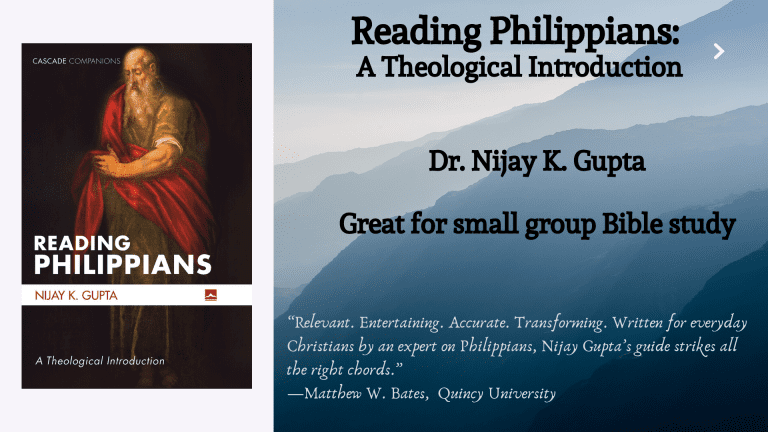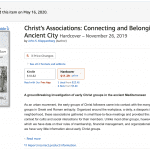Translating Philippians
This is a blog series reflecting on Bible translation by looking at the Greek text of Philippians. In my book Reading Philippians, I offer my own fresh translation of this letter. I tried to provide a readable, modern English translation, which means I made some untraditional choices. Follow along as I talk through some of these decisions. Here we will look at Phil 4:1-23.

4:8
Truth
Nobility
Justice
Perfection
Excellence
The Spectacular
Whatever showcases virtue and is worthy of respect— Let your mind dwell on such things. (4:8)
ὅσα ἐστὶν ἀληθῆ, ὅσα σεμνά, ὅσα δίκαια, ὅσα ἁγνά, ὅσα προσφιλῆ, ὅσα εὔφημα, εἴ τις ἀρετὴ καὶ εἴ τις ἔπαινος, ταῦτα λογίζεσθε·
OK, I took some artistic liberties here. Paul was using poetical style here (e.g., with the repeated ὅσα), so I wanted to capture that. I did it in visual form (with the cascading text). Probably the hardest word for me to translate here was εὔφημα, which commonly is translated “praiseworthy.” I found that “the spectacular” conveys that sense best in modern English. Think about this: if you saw someone compete in a gymnastics competition and they did great, you wouldn’t say to them afterwards, “That was praiseworthy!” You might say, “That was spectacular!” So, that is what I went for.
I have experienced the lowest lows, and I have experienced the highest highs. In every situation and in all of life, God has taught me a secret—13 I always have everything I need from the All-Powerful God, and this truth doesn’t change whether I am full or hungry, rich or poor. (4:12-13)
12 οἶδα καὶ ταπεινοῦσθαι, οἶδα καὶ περισσεύειν· ἐν παντὶ καὶ ἐν πᾶσιν μεμύημαι, καὶ χορτάζεσθαι καὶ πεινᾶν καὶ περισσεύειν καὶ ὑστερεῖσθαι·13 πάντα ἰσχύω ἐν τῷ ἐνδυναμοῦντί με.
Here I had to intermix vv. 12-13, since they together convey one idea. I liked the idea of rendering τῷ ἐνδυναμοῦντί με as “the All-Powerful God” even though it is talking about empowering Paul (rather than just generic title for God). I think the implication of that is noticeable. I also wanted to make it clear Paul was not talking about getting whatever he wants from God. So I had to fill in some of his unspoken words, which are still identifiable from the context. Hence, “this truth doesn’t change whether I am full or hungry, rich or poor.” Of course, he does talk about being full/hungry and rich/poor explicitly (χορτάζεσθαι καὶ πεινᾶν καὶ περισσεύειν καὶ ὑστερεῖσθαι), but you have to make the connection from 4:12 to 4:13 to understand fully his meaning.













